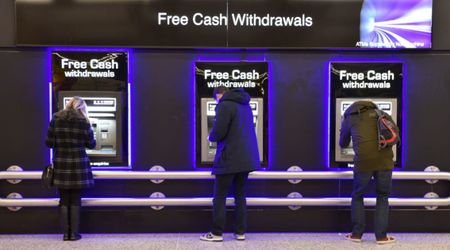Did you accidentally deposit the same check twice? Here’s what you can expect to happen next

Depositing a check twice is illegal, but it's an easy mistake to make, especially with the advent of remote deposits through a bank’s mobile app.
Depositing the same check twice is called “double presentment.” If done intentionally, double presentment is considered a form of check fraud that could lead to state or federal penalties. Penalties depend on whether check fraud is considered a misdemeanor or a felony in your state. The difference could also depend on the amount of the check deposited.

For example, in Wisconsin, check fraud of over $2,500 is a Class 1 felony punishable by up to $10,000 in fines and 3.5 years in prison. In Colorado, it’s a misdemeanor if the check is under $1,000, but you could still face up to $5,000 in fines and 18 months in jail.
What happens when you deposit a check twice?
Before you get too worried, you should know that banks are aware that most double-presentment cases are done through simple mistakes. Maybe you deposited a check through your bank’s mobile app and then forgot and tried to cash it at your bank.
Most financial institutions have systems in place to catch these mistakes and reject your second deposit. If the bank doesn’t catch the mistake right away, it will likely catch it later when it scans your account for duplicate transactions and remove the second deposit from your account.
If you are able to cash a previously deposited check at a location other than the bank you deposited it in, you will have to repay the money when the error is caught. It might take a couple of days, but the error will be eventually caught, and then you’ll have to pay back the location that cashed the check for you.
Failure to repay the check amount cashed could lead to fees charged by your bank. The bank could also close your account and seek legal action against you if it thinks that your intentions were malicious.
What you should do if you deposit a check twice.
Everyone makes mistakes, and your bank knows that. If you realize after the fact that you deposited the same check twice or cashed a check that you already deposited, contact your financial institution or check cashing location immediately. Your bank will be able to delete the second deposit from your account. If you cashed the check, you’ll have to pay back the money you received.

How to prevent yourself from depositing a check twice
With the ability to quickly deposit a check right through your smartphone, it’s no wonder that you could make the mistake of depositing the same check twice. If you use the remote deposit feature on your bank’s mobile application, make sure to have a system to mark the check in a way that shows you it has been deposited. Some checks already have a box on the back that you are supposed to mark to indicate it has been deposited.
You can check your bank account online to see if you already deposited the check. You can also contact your bank with the check number, routing number, and account number and ask them to do a search of your account to see if the check deposit is recorded.
This article was originally published three years ago.
























